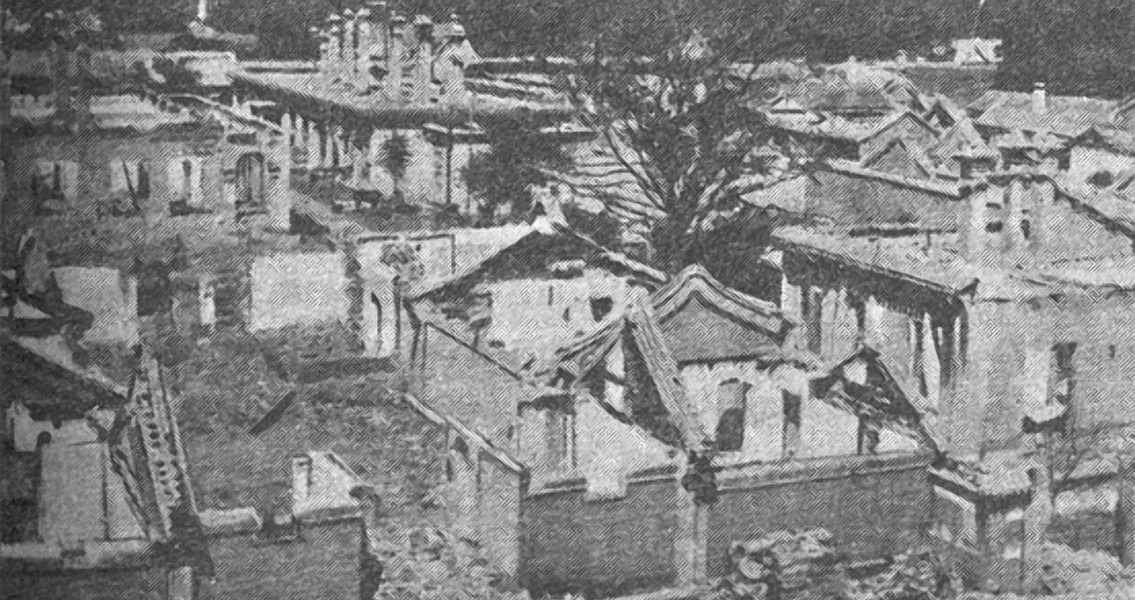<![CDATA[On 20th June, 1900, Chinese nationalists besieged the diplomatic quarter of Beijing. Burning Christian churches in the city and destroying the Beijing-Tientsin railway line, the date marked the point that the Boxer Rebellion became an international event. The Chinese secret society known as the Yihequan (Righteous and Harmonious fists) started the rebellion with the aim of overthrowing the ruling Qing Dynasty and driving all foreigners out of China. Called 'Boxers' by the British because members of the secret society practiced boxing and calisthenic rituals as part of their martial arts fighting style, the Yihequan had been steadily growing in strength and influence in northern China throughout the 1890s. A multitude of calamities, both natural and man made, befell China in the second half of the nineteenth century. A series of natural disasters were viewed by the more superstitious in Chinese society as punishment for accepting Christianity. On top of this, the Chinese economy had weakened significantly, something which many blamed on growing foreign interference. China had experienced catastrophic defeats in the Opium Wars (1839-42 and 1856-1860) and the Sino-Japanese War of 1894-1895. As well as millions of Chinese casualties, the three wars led to an increased foreign presence in China; as the victors took control over Chinese economic affairs as part of the spoils of war. The effects of Christianity had also become pronounced in China, and further provoked the Yihequan. Chinese converts to Christianity abandoned the country's traditional ceremonies and practices in favour of their new beliefs. Wealthy Christian missionaries were also able to influence local officials, encouraging them to favour the Chrisitan converts in legal and property disputes. Unsurprisingly, the first signs of the Boxer Rebellion came with attacks on Christians in rural areas. From 1899, Yihequan in the countryside openly attacked Chinese Christians and Western missionaries. In 1900, these attacks spread to the area around Beijing, with Christians being killed and churches destroyed. On 20th June, 1900, the Yihequan launched their attack on the Chinese legation district, and the event quickly drew international attention. The day after the start of the siege on the legation district, the Dowager Queen Tzu’u Hzi declared war on all foreign nations with diplomatic ties in China. Aware that the rebellion was going to take place, Tzu'u Hzi had made a secret alliance to support the Yihequan, drawing the rebellions wrath away from the Qing Dynasty and focusing it on the foreign influence in China. The move seems to have been a calculated one. The dynasty had been losing popular support with each subsequent disaster which struck China. By declaring war, the royal family had clearly backed the Boxer Rebellion, likely as an attempt to show it sided with the majority of China's population, but also revealing that it had, to a large extent, lost control of the country. An international force comprised of troops from Austria-Hungary, France, Germany, Italy, Japan, Russia, the United Kingdom and the United States was sent to China to end the Boxer Rebellion and rescue the diplomats held captive in Beijing. Although a long, drawn out conflict, they ultimately succeeded in retaking Beijing on 14th August, 1900. By this time hundreds of foreigners in Beijing had been killed, as well as thousands of Christians. Terms of the Yihequan's defeat saw government officials that been involved in the Rebellion punished. What's more, international troops were stationed in Beijing to protect the diplomats there in the future. The Qing Dynasty, which had hoped to preserve itself by siding with the rebels, ultimately lost credibility at home and abroad in the defeat. ]]>
The Boxer Rebellion
